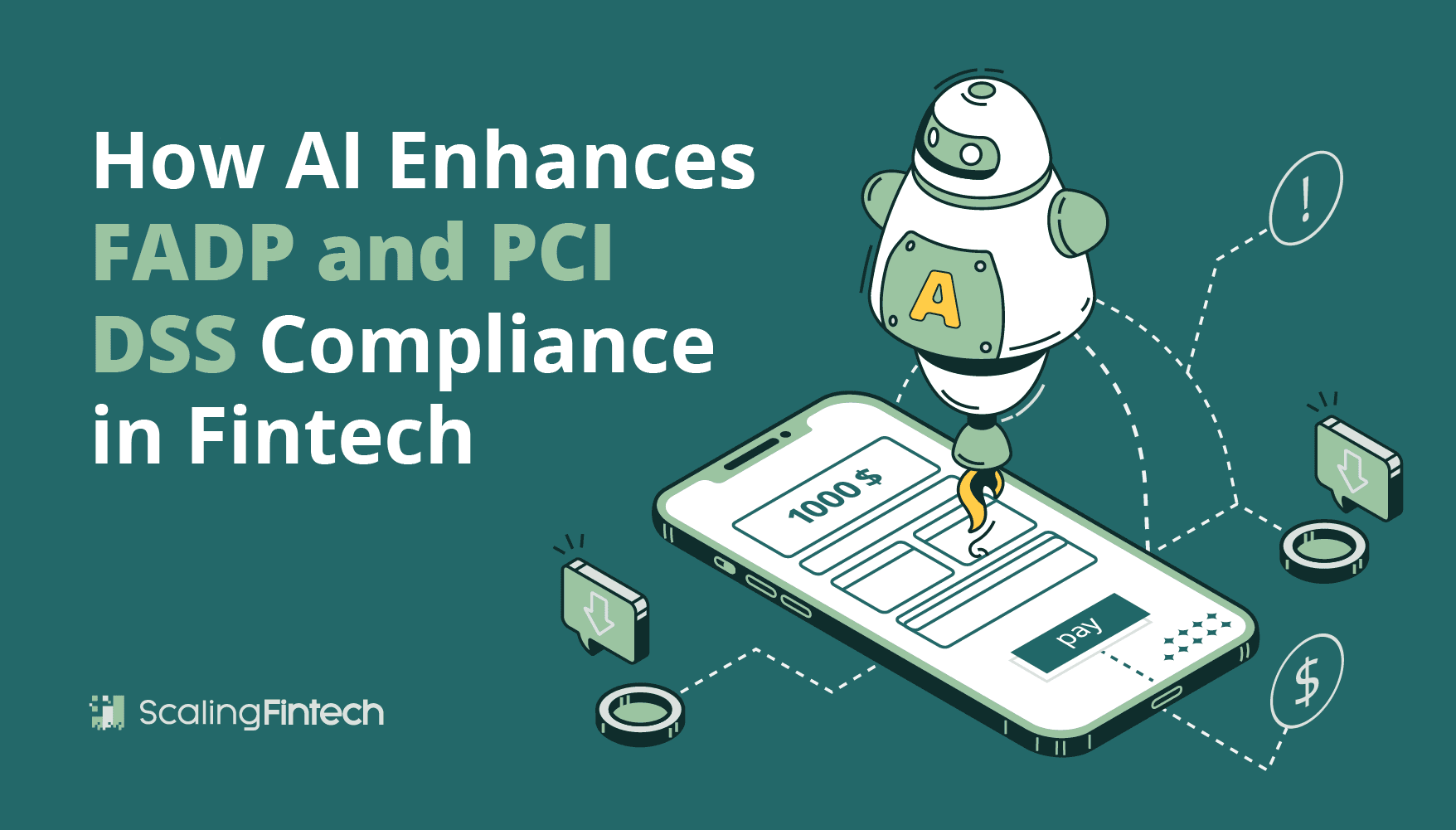BSA Compliance for Fintech: Learn key strategies for marketers and advertisers using AI to make compliance easier, build trust, and drive growth.
As fintech companies grow, managing BSA (Bank Secrecy Act) compliance can get complicated. When using AI in marketing, fintechs must handle customer data carefully, monitor transactions, and communicate clearly. These steps help avoid legal issues and build trust with customers, which is important for growth.
This guide explains what marketers and advertisers in fintech need to know about BSA banking and BSA AML compliance. It covers Know Your Customer (KYC) rules, Suspicious Activity Reporting (SAR), and anti-money laundering (AML) policies. You will also find ways to use AI to simplify compliance and create effective marketing campaigns.
Understanding BSA Compliance in the Fintech Landscape
The Bank Secrecy Act (BSA) is a foundational U.S. regulation aimed at preventing financial crimes, such as money laundering and fraud. Compliance is critical for fintech companies due to their role in the financial ecosystem. Unlike traditional banks, fintechs often operate digitally and scale quickly, making them innovative but vulnerable to compliance risks. Understanding what BSA/AML entails is crucial for fintech success.
Key Compliance Challenges for Fintechs:
- Live Transaction Monitoring: Ensuring every transaction is scrutinized in real-time.
- AI-Powered Verification: Integrating AI with existing systems for efficient customer verification.
- Security Without Compromising UX: Balancing robust security measures with user experience.
- Cross-Border Transactions: Navigating international compliance laws.
- Rapid Adaptation to New Requirements: Responding promptly to evolving regulatory landscapes.
Actionable Tip: Invest in a flexible, AI-powered compliance framework that grows with your company. This way, you’re equipped to adapt swiftly to new regulations without disrupting operations.
Key BSA Compliance Requirements for Fintech Marketers
To comply with BSA and AML regulations, fintech companies need a practical, thorough approach, especially when utilizing AI-driven marketing.
1. Customer Identity Verification (KYC)
In fintech marketing, verifying customer identity is crucial to prevent fraud and meet compliance. For example, AI-driven verification tools can seamlessly integrate with onboarding, using document authentication and biometrics to enhance BSA KYC procedures.
- Example: A fintech offering credit products uses AI to automatically verify documents and match customer data with global watchlists, ensuring compliance without slowing down the sign-up process.
- Actionable Tip: Embed automated KYC checks into your marketing funnel to enhance the customer experience while meeting compliance requirements.
2. Suspicious Activity Reporting (SAR)
Marketers must work closely with compliance teams to identify unusual customer behavior patterns. Effective SAR practices enhance transparency, mitigate risks, and boost customer trust.
- Example: A fintech marketing campaign for high-net-worth accounts uses AI to monitor for unusual transaction activity. This real-time monitoring alerts compliance teams if a pattern suggests money laundering.
- Actionable Tip: Use AI-powered monitoring tools to identify high-risk behaviors early and communicate transparently with customers about data monitoring, fostering trust.
3. Anti-Money Laundering (AML) Policies
Marketing strategies must align with AML policies to avoid targeting high-risk audiences or regions prone to financial crime. Fintech anti-money laundering measures are crucial for maintaining compliance and protecting the company’s reputation.
- Example: By implementing AI-powered AML software, a fintech can screen customer profiles for AML risks, ensuring marketing efforts target compliant audiences.
- Actionable Tip: Regularly update AML filters to keep up with changing risk profiles and maintain targeted marketing effectiveness.
How BSA Compliance Affects Fintech Marketing and Customer Trust
BSA financial compliance influences marketing and directly impacts customer trust. A transparent, compliance-focused marketing strategy shows customers that data security and privacy are prioritized.
| Compliance Aspect | Marketing Impact | Trust-Building Effect |
| Identity Verification (KYC) | Longer onboarding process | Builds a perception of security |
| Transaction Monitoring | Limited promotional offers | Creates reliability and safety |
| Data Protection | Restricted targeting options | Enhances confidence in the brand |
Summary: Integrating compliance measures into your marketing builds customer loyalty by emphasizing safety. Customers feel more secure, knowing your fintech meets regulatory standards.
Consequences of Failing to Comply with BSA Regulations
Failure to comply with BSA regulations can have severe consequences, affecting your brand’s growth and stability. Understanding these risks can motivate fintech companies to prioritize compliance.
Financial Penalties and Fines
Violating the Bank Secrecy Act (BSA) can bring big financial penalties for fintech companies. Civil penalties for serious violations range from $57,317 to $229,269 for each incident. Some due diligence violations can result in fines up to $1,423,088. Violations related to keeping funds transfer records may cost up to $21,039.
Reputational Damage and Loss of Customer Trust
When BSA compliance issues become public, they can harm your brand’s reputation. Customers, partners, and investors may lose trust in your company.
- Example: A fintech that fails to report suspicious activity may be labeled as a high-risk entity, resulting in adverse media coverage and decreased customer loyalty.
- Actionable Tip: Prioritize transparency in your marketing to reinforce your commitment to compliance and protect your brand reputation.
Operational Restrictions and Legal Actions
Non-compliance can also lead to operational constraints, such as limited access to certain markets or restrictions on processing transactions. Legal actions may also follow.
| Restriction Type | Impact on Operations | AI Implementation Effects |
| Transaction Limits | Reduced processing capacity | Fewer data for model training |
| Market Access | Geographic Restrictions | Limited data diversity |
| Partner Relations | Limited integrations | Fewer automation possibilities |
Leveraging AI for BSA Compliance in Fintech Marketing

Artificial intelligence plays a transformative role in making BSA compliance more manageable for fintech companies. AI technologies can simplify complex processes, helping fintech marketers stay compliant while optimizing campaigns.
AI-Powered Customer Verification Systems
AI enables quick, accurate identity verification, analyzing multiple data points to meet BSA standards. These systems balance security with user experience and support BSA-enhanced due diligence.
- Example: AI verifies a customer’s ID and facial recognition, comparing it to government databases to confirm authenticity in seconds.
- Actionable Tip: Use AI-powered biometric authentication to streamline verification and reduce the chance of errors, speeding up onboarding.
Machine Learning for Fraud Detection
Machine learning algorithms analyze transaction patterns to detect fraud that traditional methods might miss. These systems can identify suspicious behaviors and alert compliance teams immediately, enhancing banking AML compliance.
| Capability | Marketing Benefit | Compliance Impact |
| Pattern Recognition | Better audience targeting | Reduced fraud risk |
| Behavioral Analysis | Improved conversion rates | Enhanced transaction monitoring |
| Predictive Modeling | Optimized campaigns | Proactive compliance |
Automated Compliance Monitoring and Reporting
AI-powered tools automate transaction monitoring, identifying and reporting issues in real-time. This allows your marketing team to focus on growth while maintaining compliance.
- Actionable Tip: Implement automated monitoring systems to handle large transaction volumes, freeing up resources for innovation while staying compliant.
How Scaling FinTech Can Help with BSA Compliance
Scaling FinTech provides AI-driven, BSA-compliant advertising solutions tailored to the specific needs of fintech companies. Our strategies focus on driving lead generation, boosting conversions, and fostering sustainable growth, all while ensuring strict adherence to BSA requirements for data handling, monitoring, and reporting.
Why Partner with Scaling FinTech?
- Precision: We design customized campaigns that align with your growth objectives and BSA compliance goals, ensuring effective, regulation-friendly marketing.
- Transparency: Our real-time reporting gives you full visibility into campaign performance, so you can track compliance and results simultaneously.
- Client-Centric Growth: Our solutions prioritize both impact and ROI, positioning compliance as a core part of your strategy.
Book a free strategy consultation with Scaling FinTech to learn how BSA compliance can become a competitive advantage in the financial industry, helping you build trust, drive growth, and stay aligned with regulatory standards.
Conclusion
AI-driven compliance solutions empower fintech companies to meet BSA requirements efficiently, enabling growth and building customer trust. By implementing AI-powered verification, fraud detection, and automated reporting systems, fintechs can stay compliant while enhancing marketing and customer experience.
Key Takeaways:
- Integrating compliance with marketing fosters customer loyalty and boosts brand credibility.
- Using AI for compliance offers real-time insights and increased accuracy, improving your marketing impact.
- Proactive BSA management supports long-term growth and sets your fintech apart in a competitive landscape.
To navigate BSA compliance effectively and elevate your marketing strategies, contact Scaling FinTech. Our tailored solutions align your fintech’s marketing with BSA standards, ensuring compliance while helping you build a trusted brand.

FAQs
What does AI mean in the context of BSA and AML? AI in BSA/AML compliance helps automate transaction reviews and minimize false positives, allowing for faster, more accurate fraud detection.
Is it mandatory for financial institutions to comply with BSA regulations? Yes, BSA compliance is required for financial institutions to prevent financial crimes like money laundering and terrorist financing.
How is AI utilized in the fintech industry? AI enhances customer service, cybersecurity, predictive analytics, fraud detection, and data-driven marketing in fintech, helping companies scale efficiently.
What are the essential components of a financial institution’s BSA/AML compliance program? A compliance program should include internal controls, independent testing, designated compliance officers, and ongoing training to ensure BSA standards are met. It should also incorporate a risk-based approach to BSA/AML compliance and address AML policy requirements.
What is BSA in banking and finance? BSA in banking and finance refers to the Bank Secrecy Act, which requires financial institutions to assist U.S. government agencies in detecting and preventing money laundering. It’s a crucial aspect of BSA in finance and forms the foundation of BSA financial regulations.
How does AML in fintech differ from traditional banking? AML in fintech often involves more advanced technologies and real-time monitoring systems compared to traditional banking. Fintech companies face unique Fintech AML risks due to their digital nature and rapid transaction processing.
What is a BSA AML policy template? A BSA AML policy template is a framework document that outlines the key components of a financial institution’s anti-money laundering program. It typically includes sections on customer due diligence, transaction monitoring, and reporting procedures.
How does money laundering technology impact fintech compliance? Money laundering technology refers to both the methods used by criminals to launder money and the tools used by financial institutions to detect and prevent such activities. In fintech, advanced AI and machine learning technologies are crucial for staying ahead of sophisticated money laundering schemes.
What is the role of a compliance officer in BSA/AML programs? A compliance officer is responsible for overseeing the implementation and maintenance of the BSA/AML program. They ensure that the institution adheres to all relevant regulations, conducts regular risk assessments, and updates policies and procedures as needed.
How do banking partnerships affect fintech BSA compliance? Banking partnerships can significantly impact a fintech’s BSA compliance obligations. These partnerships often require fintechs to adhere to the bank’s compliance standards, which may be more stringent than those typically applied to non-bank entities.




